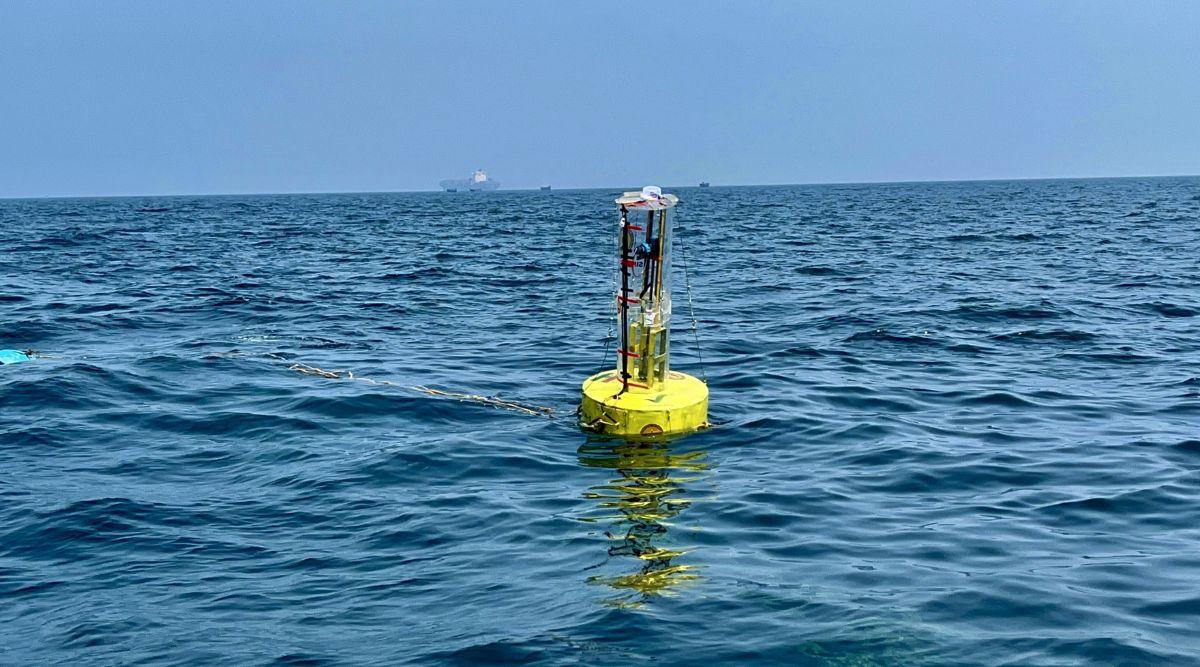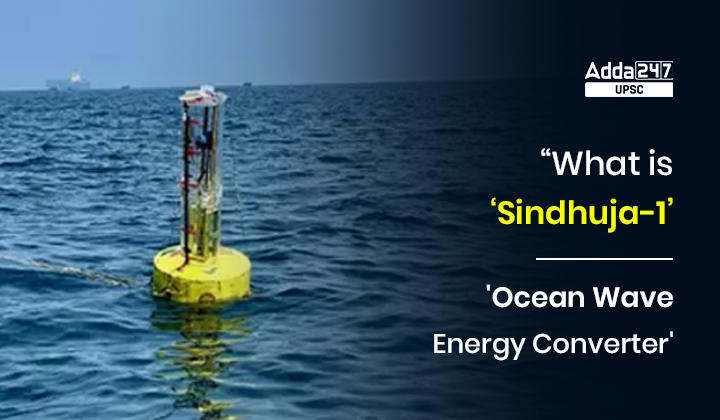Table of Contents
Relevance of ‘Sindhuja-1’ for UPSC CSE
‘Sindhuja-1’ which is an Ocean Wave Energy Converter which will be of great benefit to fulfill India’s target of Sustainable energy production. ‘Sindhuja-1’ covers GS 3: Science and Technology Section for UPSC CSE.
Also Read:
The Editorial Analysis- Sticking to Commitments, Balancing Energy Use and Climate Change
Why ‘Sindhuja-1’ in news?
- Indian Institute of Technology Madras (IIT Madras) Researchers have developed an ‘Ocean Wave Energy Converter’ that can generate electricity from sea waves.
- The trials of this device were successfully completed during the second week of November 2022.
Also Read:
Sustainable Cities India Program
How Ocean Wave Energy Converter i.e. Sindhuja-I Works?

- The Ocean Wave Energy Converter has been named ‘Sindhuja-I,’ which means ‘generated from the ocean.’
- The system has a floating buoy, a spar, and an electrical module.
- The buoy moves up and down as the wave moves up and down.
- In the present design, a balloon-like system called a ‘buoy’ has a central hole that allows a long rod called a spar to pass through it.
- The spar can be fixed to the seabed, and passing waves will not affect it, while the buoy will move up and down and produce relative motion between them.
- The relative motion gives rotation to an electric generator to produce power.
- In the present design, the spar floats, and a mooring chain keeps the system in place.
Also Read:
Government Planning to Blend Green Hydrogen with Natural Gas
What is India Targeting through Sindhuja-1’?
- The Ocean Wave Energy Converter i.e. Sindhuja-1 targets generating 1MW of power from ocean waves in the next three years.
- The success of this project will help fulfill several objectives such as the UN Ocean decade and sustainable development goals.
- India’s goals include deep water missions, clean energy and achieving a blue economy.
- It could help India meet its climate change-related goals of generating 500 GW of electricity by 2030 through renewable energy.
- The Ocean Wave Energy Converter is targeted towards remote offshore locations that require reliable electricity and communication either by supplying electric power to payloads that are integrated directly in or on the device or located in its vicinity as on the seabed and in the water column.
- The targeted stakeholders are the oil and gas, defence and security installations and communication sectors.
In which location ‘Sindhuja-1’ is deployed?
- The Ocean Wave Energy Converter i.e. Sindhuja-1 was deployed at a location about 6 KM off the coast of Tuticorin, Tamil Nadu, at a location with a depth of 20 metres.
- Sindhuja-I can currently produce 100 watts of energy. It will be scaled up to produce one megawatt of energy in the next three years.
Also Read:
Sustainable Development Report 2022
Who led the Sindhuja-1 Mission?
- IIT Madras faculty Prof. Abdus Samad, who has been working for over a decade on wave energy, leads the mission.
- He established a state-of-the-art ‘Wave Energy and Fluids Engineering Laboratory’ (WEFEL) at IIT Madras.
- His team designed and tested a scaled-down model.
- The lab is also researching other applications for this technology such as producing power for smaller devices for the ocean like navigational buoys and data buoys, among others.
What are the possible benefits of Sindhuja-1 Ocean Wave Energy Converter?
- India has ideal conditions to get maximum benefit from Sindhuja-1 Ocean Wave Energy Converter, as India has 7,500 km long coastline capable of producing 54 GW of power, satisfying a substantial amount of the country’s energy requirement.
- Seawater stores tidal, wave, and Ocean thermal energy.
- Among them, the harnessing of 40GW wave energy is possible in India.
You may be interested in other Environment and Ecology current affairs:




 TSPSC Group 1 Question Paper 2024, Downl...
TSPSC Group 1 Question Paper 2024, Downl...
 TSPSC Group 1 Answer key 2024 Out, Downl...
TSPSC Group 1 Answer key 2024 Out, Downl...
 UPSC Prelims 2024 Question Paper, Downlo...
UPSC Prelims 2024 Question Paper, Downlo...
